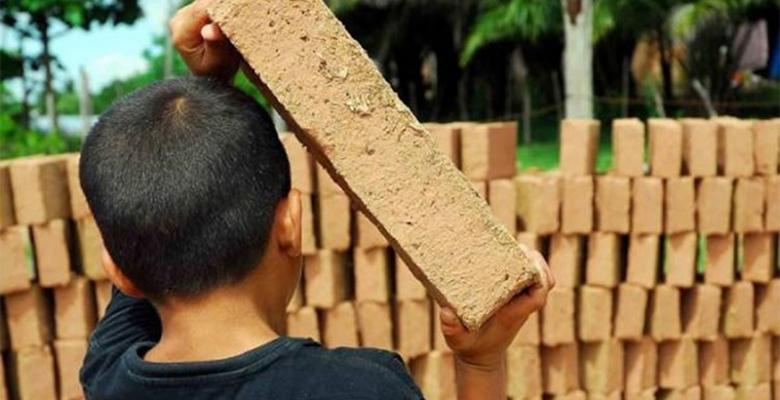Will the Pandemic Affect Progress Towards the Abolition of Child Labor?
especiales

Year 2020 means even for children something unprecedented, unique in life. For others it might be something similar, but not entirely, to the memory of an old anecdote of grandpa, and perhaps imprecisely that of a novel, or even a sci-fi movie.
Because of the new coronavirus, almost the entire planet has been left sleepless for nights of anguish and insomnia.
There are those who sadly suffer the loss of children, parents, siblings, grandparents and friends, and wish for the human warmth and affection of relatives who were apart by land, air borders and confinement measures.
The pandemic will leave for history the footprint of devastated food systems and economies and a higher rate of poverty and homelessness.
History that is not in the future because today there are millions of unemployed in many nations. There are millions of families without the father's salary that guaranteed the daily meals and not even scientists are sure if the end of Covid-19 will come or when it will be.
On June 12, the World Day against Child Labor was celebrated, a wonder that could be even more relevant in these times due to the complex situation we endure.
The United Nations estimates that “the crisis can push millions of vulnerable children into child labor. There are already nearly 152 million children in child labor situations, 72 million of them carry out hazardous work. These children are now at greater risk of facing even more difficult circumstances and working longer hours a day.”
Taking this day as a platform to make a global call to protect infants against child labor and this time the campaign will be virtual.
In that same day a document was published, together with the International Labor Organization and the United Nations Children's Fund, which examines some of the main channels through which the pandemic is likely to affect progress towards the elimination of child labor.
Although Cuba is the safest country in Latin America for children and teenagers, since they officially have rights and a greater possibility of growing up healthy, receiving education and being protected, it’s estimated that one in 10 children in the world do not enjoy these privileges and undergo child labor situation.
Experts support that when “working children are too young to work or participate in dangerous activities this can compromise their physical, mental, social or educational development. In least developed countries, slightly more than one out of four children, ages 5-17 work in jobs considered unfavorable to their health and development.”
Among the most affected regions, Africa ranks first due to the percentage of children in child labor, a fifth part, as well as for the absolute figure of children in child labor: 72 million, while Asia and the Pacific fall second with 7% and 62 million in absolute terms.
According to the UN, 5% of children are in child labor in the Americas, 4% in Europe and Central Asia and 3% in the Arab States.
While the highest percentage of children in child labor is supposed to be higher in low-income countries, reality shows that this is more perceptible in middle-income nations.
“Statistics on the absolute figure in each national income group indicate that 84 million children are in child labor, 56% of whom live in middle-income countries, and another 2 million live in high-income countries. "
That is why, every year, June 12th must reach the consciousness of each adult, not like any other day, but as a warning so that this phenomenon is over and someday shows almost imperceptible figures, however distant it seems.
Like Jose Marti said: "We work for children because children are those who know how to love, because children are the hope of the world."
Translated by Amilkal Labañino / CubaSí Translation Staff













Add new comment